Our world runs on data, from streaming movies to vital business operations. Where does all this digital information live and get processed? What makes these facilities so crucial?
A data center is a secure, dedicated facility that houses computing infrastructure (servers, storage, networking) used to process, store, and distribute large amounts of data for businesses and services.
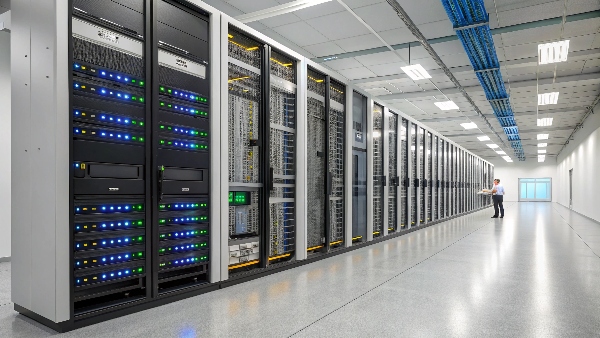
Transition Paragraph:
Having spent years at Daopulse providing critical power solutions, I've seen the explosive growth and increasing importance of these facilities. My core insight is simple: The demand for data centers is increasingly vital in today's internet era. They are the unseen powerhouses enabling our connected lives, and this reliance is only growing. Procurement managers like Mr. Li know that the reliability of their own operations, whether in a hospital or a financial institution, often traces back to a data center somewhere.
What exactly does a data center do?
We hear "data center" often, but what's really happening inside those secure walls? What are their core functions in our digital-first world?
A data center centralizes an organization's IT operations and equipment for storing, processing, and disseminating data and applications. It supports critical functions like cloud computing, big data analytics, and web hosting.
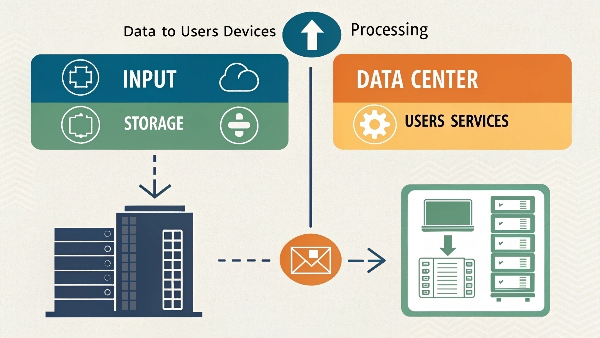
A data center is much more than just a building full of computers. It's a highly specialized facility designed to ensure the reliability, security, and continuous operation of an organization's most critical IT assets. At Daopulse, we provide the uninterruptible power supplies that are foundational to these functions. My insight that the demand for data centers is increasingly vital in today's internet era stems from observing their expanding roles:
- Data Storage and Management: This is fundamental. Data centers house vast arrays of storage systems (like SANs and NAS) to securely store everything from company databases and customer information to website content and cloud backups.
- Application Hosting and Delivery: They run the applications that businesses and consumers use every day – email servers, enterprise resource planning (ERP) systems, customer relationship management (CRM) software, e-commerce platforms, and streaming services.
- Network Infrastructure Hub: Data centers are major network hubs, connecting to various internet service providers and private networks to ensure fast and reliable data flow to and from users.
- Cloud Computing Services: Many data centers provide the physical infrastructure for cloud services, offering Infrastructure as a Service (IaaS), Platform as a Service (PaaS), and Software as a Service (SaaS) to customers.
- Big Data Analytics and AI: The immense processing power in data centers is used for complex tasks like analyzing large datasets (big data), training artificial intelligence models, and running simulations.
- Disaster Recovery and Business Continuity: Many organizations use data centers (often secondary sites) to back up their data and systems, ensuring they can recover quickly from an outage or disaster at their primary location.
Essentially, a data center provides the physical environment, power, cooling, security, and connectivity needed to keep the digital heart of an organization beating strong.
What is the highest salary for a data center technician?
Working in a data center requires specialized skills. For those on the front lines, the technicians, what kind of earning potential exists at the top end?
Highly experienced data center technicians, especially those with specialized certifications (e.g., electrical, cooling, networking) or in management roles, can earn upwards of $100,000-$150,000+ USD annually in high-demand areas.
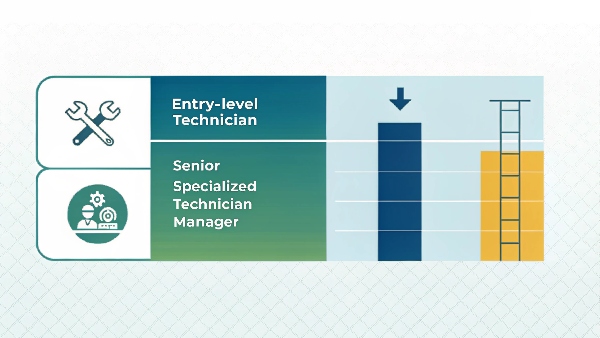
The salary for a data center technician can vary significantly based on several factors. While entry-level positions might start much lower, the ceiling for experienced and specialized professionals is quite high. As the demand for data centers is increasingly vital in today's internet era, so too is the demand for skilled individuals to run them.
Here are key factors influencing a data center technician's salary:
- Experience: More years in the field, especially with a proven track record of handling complex issues, command higher pay.
- Specialization and Certifications: Expertise in specific areas like:
- Electrical Systems: Working with UPS, PDUs, generators (which we at [Your Company Name] manufacture).
- HVAC/Cooling: Managing complex CRAC/CRAH units.
- Networking: Certifications like CCNA, CCNP.
- Server/Storage Hardware: Vendor-specific certifications.
- Data Center Design/Management: Certifications like CDCP (Certified Data Centre Professional).
- Location: Salaries are generally higher in major tech hubs and areas with a high concentration of data centers (e.g., Northern Virginia, Silicon Valley, major European cities) due to higher cost of living and greater demand.
- Company Size and Type: Large enterprise data centers or hyperscale cloud providers might offer more competitive salaries than smaller colocation facilities.
- Role and Responsibilities: Senior technicians, team leads, or those in supervisory/management roles within the technical operations team will earn more. A "Data Center Operations Manager" or "Facilities Engineer" can earn well into six figures.
So, while an entry-level technician might start in the $45,000 - $65,000 range, a highly skilled senior technician with multiple certifications and significant experience in a high-demand region could indeed earn $100,000 to $150,000 or even more, particularly if they move into specialized engineering or management tracks within the data center.
What are the three types of data centres?
Data centers aren't one-size-fits-all. Different organizations have different needs. What are the main categories or deployment models for these critical facilities?
The three main types of data centers are: 1) Enterprise (on-premises, owned/operated by one company), 2) Colocation (rented space and infrastructure), and 3) Hyperscale/Cloud (massive facilities supporting cloud services).
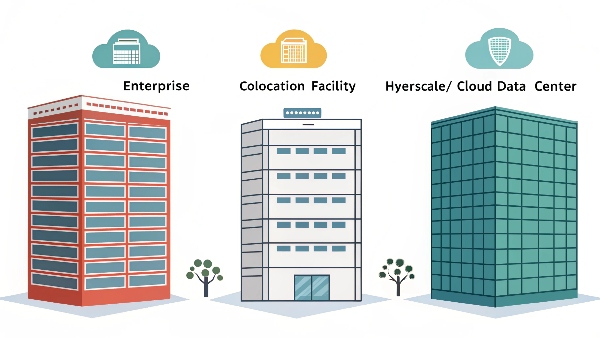
Understanding the different types of data centers is important because it reflects how businesses choose to manage their IT infrastructure. As the demand for data centers is increasingly vital in today's internet era, these models cater to diverse needs.
Here's a breakdown:
-
Enterprise Data Centers (On-Premises):
- Description: These are facilities built, owned, and operated by a single company for its own internal IT needs. They house the company's servers, storage, and networking equipment.
- Control: The company has full control over the design, security, and operations.
- Use Case: Common for large organizations with specific security, compliance, or performance requirements that prefer to keep their IT in-house. Think large banks, government agencies, or research institutions.
- Trend: While still prevalent, there's a shift for some workloads towards colocation or cloud due to high capital expenditure (CapEx) and operational expenditure (OpEx).
-
Colocation Data Centers:
- Description: These are facilities where a company rents space (e.g., racks, cages, or private suites) from a data center provider. The provider offers the building, cooling, power (including our UPS systems!), and physical security. The client company owns and manages its servers, storage, and networking equipment.
- Benefits: Lower CapEx than building an enterprise facility, access to robust infrastructure, often better connectivity options.
- Use Case: Popular with businesses of all sizes that want control over their IT hardware but don't want to manage the physical facility.
-
Hyperscale/Cloud Data Centers:
- Description: These are extremely large facilities, often purpose-built and operated by major cloud service providers (CSPs) like Amazon Web Services (AWS), Microsoft Azure, and Google Cloud Platform (GCP), or large internet companies. They are designed for massive scale and efficiency.
- Function: They provide the infrastructure for public cloud services, supporting millions of users and vast amounts of data.
- Characteristics: Highly automated, optimized for power efficiency (PUE), and often located strategically for cost and connectivity.
It's also worth noting "Edge Data Centers," smaller facilities located closer to end-users to reduce latency for applications like IoT, streaming, and gaming. These are becoming more common as well.
| Data Center Type | Ownership & Operation | Primary User | Key Benefit |
|---|---|---|---|
| Enterprise | Owned by a single company | The company itself | Full control, custom security/compliance |
| Colocation | Rented space in shared facility | Businesses needing physical infrastructure | Reduced CapEx, shared operational burden |
| Hyperscale/Cloud | Owned by major CSPs/Tech Cos. | Users of public cloud services, general public | Massive scalability, on-demand resources |
What is an example of a data center?
To make the concept more concrete, what are some real-world examples or well-known names associated with these massive digital infrastructure hubs?
Examples include Google's global data centers, Amazon Web Services (AWS) regions (e.g., us-east-1), Microsoft Azure facilities, Equinix colocation sites, or a large bank's private enterprise data center.
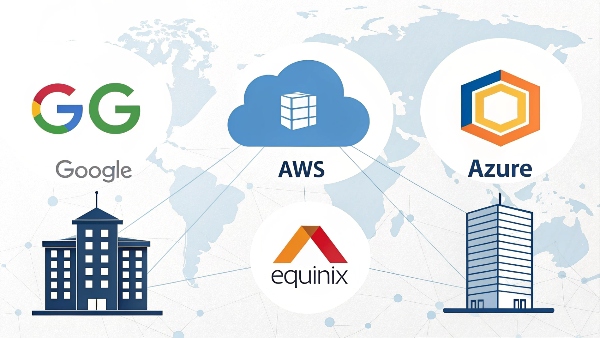
Data centers range from the highly visible operations of tech giants to the more private facilities run by large corporations. My insight that the demand for data centers is increasingly vital in today's internet era is clearly demonstrated by the scale and ubiquity of these examples.
Here are some prominent examples, categorizing them by the types discussed earlier:
-
Hyperscale/Cloud Data Centers1:
- Google: Operates numerous massive data centers globally to power its search engine, YouTube, Gmail, Google Cloud, etc. Their facilities in places like The Dalles, Oregon, or Hamina, Finland, are well-known for their scale and innovative cooling.
- Amazon Web Services (AWS)2: Has "Availability Zones" and "Regions" worldwide, which are essentially clusters of data centers. For instance, their
us-east-1region in Northern Virginia is one of the largest internet hubs in the world. - Microsoft Azure3: Similar to AWS, Microsoft has a vast global network of data centers powering Azure cloud services, Office 365, and Xbox Live.
- Meta (Facebook): Operates huge data centers to support Facebook, Instagram, and WhatsApp, like their facility in Prineville, Oregon.
-
Colocation Data Centers:
- Equinix: One of the largest global colocation providers, with hundreds of data centers in major metropolitan areas worldwide, where businesses rent space and interconnect.
- Digital Realty: Another major player offering colocation and interconnection services across the globe.
-
Enterprise Data Centers:
- Major Financial Institutions: Large banks (e.g., JPMorgan Chase, Bank of America) typically operate their own highly secure, private data centers to handle sensitive financial transactions and customer data.
- Large Corporations: Many Fortune 500 companies in various sectors (manufacturing, retail, healthcare) maintain their own enterprise data centers for critical applications, though some are migrating workloads. For example, a large hospital system like the one Mr. Li's company supports would have significant on-premises or dedicated data center capacity for patient records and medical systems.
These examples show the diverse entities that rely on robust data center infrastructure, all of which require dependable power solutions like those we provide at Daopulse.
Conclusion
Data centers are the indispensable backbone of our internet-driven world, housing critical IT infrastructure. Their types vary, but their 24/7 operational demand is universal and growing.
-
Understanding Hyperscale/Cloud Data Centers can provide insights into modern data management and cloud computing trends. ↩
-
Exploring AWS will reveal its extensive capabilities and how it supports businesses globally. ↩
-
Discovering Microsoft Azure's benefits can help you leverage cloud technology for your organization. ↩

